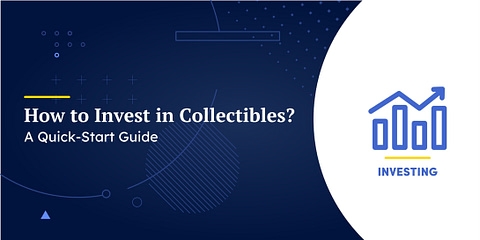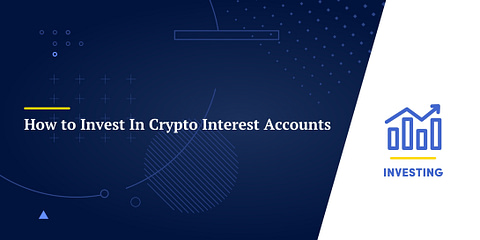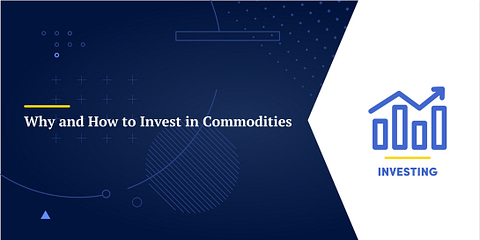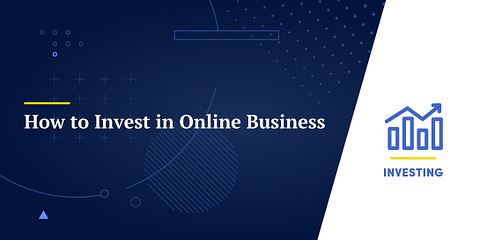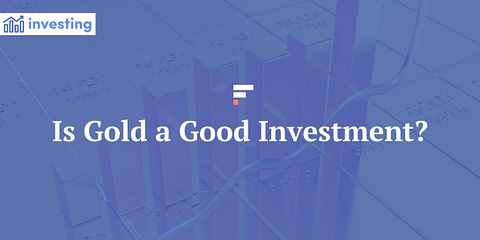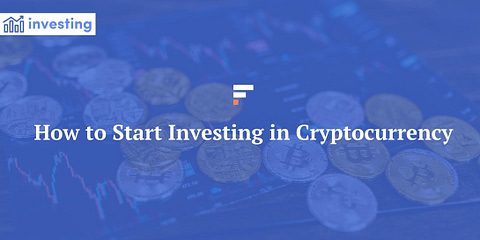Alternative investments can diversify portfolios and potentially boost their overall returns. That potential has driven a surge in popularity. However, investing in alternative assets is not for everyone. These investments are inherently more complex than many conventional investments. Underlying valuations can be hard to determine. Purchase costs may be high. Exiting the investment may be more difficult because of their relative illiquidity and possible restrictions on certain types of assets.
If you’re considering alternative investments, you’ll need to learn before you buy. Here’s a basic briefing to start the process.
What are Alternative Investments?
An alternative investment involves exposure to assets other than the traditional cash, bonds, funds, and stocks. Alternative investments may be made in physical assets (such as gold, art, or rare wines), or in financial assets, such as hedge funds, private equity, REITs, distressed securities, or cryptocurrency. These asset classes often do not have a correlation with equity markets, and they may perform strongly when the stock markets are bearish. That’s because many investors seek alternatives, especially those that involve ownership of a hard asset, when markets are not performing well.
Most types of alternative investments have a relatively high risk profile and promise high returns. You may have to lock up your funds for several years to earn those returns, and there’s no guarantee that you will earn them at all. These investments can be capital intensive, requiring a large initial outlay. Buying and selling can be difficult, so you may not get a quick exit when you need cash.
Types of Alternative Investments
As an individual investor or as a beginner, you may do well to restrict yourself to one of the following alternative investments if you are looking to add them for portfolio diversification. Start with the one you understand best. Once you’re comfortable with it, consider adding others.
Some of the more popular forms of tangible and intangible alternative investments include:
P2P Lending
A number of online P2P lending platforms, such as Prosper, LendingClub and Peerform offer loans for personal use, business use, and almost any other need. Mintos operates in Europe, and Funding Circle serves the US and the UK. YieldStreet allows participants to make loans secured by collateral, which reduces risk.
All of these services allow you to join an investor pool and lend your money to qualified borrowers for a return that will typically be higher than what you’d earn from a traditional savings vehicle.
Real Estate
Real Estate Investing is one of the most popular forms of alternative investment. You may consider buying and owning a property, such as a house or an apartment complex, and collecting rent from the tenants. If you wish to avoid the responsibilities of a landlord, you may hire a property manager. Remember that managers cost money, and will cut into your returns!
Online investing platforms such as Fundrise and PeerStreet are also gaining popularity. These platforms allow you to invest in residential properties without the typical responsibilities of a landlord. REITs also offer a way to invest in real estate without the entry barriers and liquidity restraints of direct investment in real estate.
Gold
Many people see gold as an excellent portfolio diversifier and a tangible hedge against the risks of inflation. In times of unforeseen economic challenges, gold has historically performed the role of a rescue asset, rising in value when other assets fall. You can invest in physical gold coins or bars, or invest in gold accounts, gold ETFs, or participate indirectly by investing in stocks of gold mining companies.
Equity Crowdfunding
If a startup you have invested in succeeds over time, you can make enormous returns on your capital. However, if the startup fails (Forbes Magazine reports that 90% of startups fail) you risk losing your entire investment. Equity Crowdfunding lets you take on the role (and the risks) of a Venture Capital firm with only a moderate investment.
Cryptocurrencies
Digital currency assets like Bitcoin have been delivering astronomically high returns for a small number of investors. However, the extremely volatile nature of crypto assets makes them a risky alternative investment. The concept behind the usefulness, security and value of cryptocurrencies is highly abstract. They are popular today but there’s no assurance that they will be tomorrow. The current high valuation of many cryptocurrencies may indicate that the fad has run its course.
Crypto Interest Accounts
Cryptocurrency interest accounts let you earn interest on your cryptocurrency holdings. You’ll allow someone else to use your crypto keys, and in return they’ll pay you interest. Many of these accounts pay substantially higher interest than normal savings accounts, with payouts on some accounts reaching 8-12% per year. It’s important to note that these accounts are not insured by the FDIC. Some accounts may have a lockup period after your first deposit and accounts often limit withdrawals, so if the value of your cryptocurrency turns down you may not be able to sell as fast as you’d like.
Popular Crypto interest account providers include BlockFi, Celsius Network, Nexo, and Compound. Each has its own advantages and disadvantages, so you’ll want to do some research before making a decision.
Collectibles
Collectibles include everything from fine art to wines, coins, stamps, and almost anything else that people are willing to pay for. Investing in art is one of the most popular forms of investment in collectibles, but there are many other options. In most cases collectibles are not highly liquid, and it may be difficult to find a buyer when you want to sell. You’ll need to have either professional advisors or a high degree of expertise in the particular field you’ve chosen.
If you want to invest in collectibles without committing large sums, look into Masterworks, a platform that allows you to buy a fraction of a high-value artwork. You won’t be able to hang the piece in your living room, but your shares can be bought and sold and you can mitigate the risk of sole ownership.
Commodities
Dozens of commodities are traded on US exchanges, ranging from oil of gold to wool, rubber, and various grains and food products. Most fall into four broad categories: metals, energy, agricultural, and livestock and meat.
There are several ways to trade commodities, including futures contracts, options, and commodity-focused ETFs. The value of commodities can be affected by many factors, and many of those factors are unpredictable. That makes commodities trading risky, but there are profits to be made if you have the expertise. You will need to study commodities trading for some time before you’re ready to trade, as the processes are complex.
Private Equity Funds
Private equity funds combine the potential gains of private equity investing with the diversification of a mutual fund. These funds pool money from multiple investors and invest it in dozens or hundreds of selected startups, with the diversification providing some cushion against the risks of startup investing
Consider the AngelList Access Fund or the Seedrs EIS100 Fund. Some private equity funds are limited to high net worth investors, and minimum investments may be substantial.
Agriculture and Farmland
Agriculture is an industry with inherent potential: everyone needs to eat, and growing populations and nations emerging into prosperity push food demand and prices up. Investing in agriculture can be complicated, especially if you don’t plan to own and operate a farm. There are still ways to do it.
The simplest way to invest in agriculture is through exchange-traded funds like the Van Eck Vectors Agribusiness fund (NYSEARCA: MOO) or the Invesco DB Agriculture fund (NYSEARCA: DBA), which invests in agricultural commodity futures. These and other funds invest in a variety of agricultural enterprises, giving you a diversified agriculture portfolio with a single investment.
There are several other options for investing in farmland. AcreTrader allows you to purchase shares in farmlands, and crowdfunding platforms like Harvest Returns, Farm Together, and FarmFundr link investors to agricultural enterprises that seek financing.
Income Annuities
An income annuity delivers a monthly income stream in return for a fixed investment. You invest a lump sum and receive monthly payments, often for life. Individuals in or approaching retirement often use income annuities to supplement their retirement income.
Income annuities may involve committing a substantial sum, and you should consult a financial professional to determine which product suits your needs best.
Treasury Securities
Treasury securities are fixed-income investments issued by the United States government, and are considered to be among the most secure investments you can make. Because of that security interest rates may be low, especially when the overall interest rate environment is low. Treasury securities still have a place, especially for investors with a low risk tolerance.
Treasury Securities are usually divided into short-term Treasury Bills (T-Bills), mid-term Treasury Notes (T-Notes), long-term Treasury Bonds (T-Bonds), and Treasury Inflation-Protected Securities (TIPS). Each has its own term and payout system, but in each case you are lending money to the US Government. The interest rate may be low, but you will receive it and you will get your money back when the term of the investment is up!
Certificates of Deposit
Most banks and credit unions offer certificates of deposit, often called CDs. These accounts require you to commit funds for a specific period of time. In return you’ll get a higher interest rate than most savings accounts offer. You’ll pay an interest penalty if you withdraw the money before the time period expires. CDs are insured by the FDIC and are a highly secure way to save money. Many people use CDs to save for a specific purpose that dictates when the money will be used, like a tuition payment or a down payment on a house.
Some CD users opt for a CD ladder, which uses multiple CDs with different maturity dates to assure regular availability of funds. Ask your bank, credit union, or other CD provider for details.
Invest in Online Business
Many people start online businesses and find that they are not in a position to sustain them or maximize their potential. These businesses are often for sale, sometimes at quite affordable prices. If you’re considering starting an online business, buying an existing one can save you a lot of work and time.
As with any decision to go into business, you’ll need some time and some expertise to choose and evaluate an online business that’s been offered for sale. You’ll need to understand the business niche and the underlying technology, and you’ll need to review the financials carefully. Choosing the wrong business could mean a lot of time and energy put into making the website and the business viable. Choosing the right one could be a short route to online profits.
These are very different investment instruments, but they all have one thing in common. If you plan to invest, you’ll need a strong understanding of your chosen alternative investment.
⚠️ Knowledge is power, and these are not investments to make casually.
Pros and Cons
You should objectively evaluate the strengths and limitations of alternative investments before making a decision to buy.
Pros of Alternative Investments
These are some of the advantages of alternative investments.
✅ Tax Benefits
Some types of alternative investments may offer sheltered or tax advantaged cash flows. Favorable long-term capital gains tax treatment and pass-through depreciation are two distinct tax benefits to consider in some of these investments. If you become a part-owner of a private syndicate or fund in an alternative investment, the tax benefits (such as a deduction for depreciation) will get passed on to you directly.
⚠️ The tax status of alternative investments and their earnings can be complicated, and you’ll need to consult a tax professional to be sure you’re assessing them correctly.
✅ Opportunity for Exceptional Returns
Alternative investments are often parts of less efficient markets, which increases the possibility to earn exceptional returns. Sometimes the market conditions may favor a particular asset class, give you the chance to profit from it.
👉 For instance, after the 2008 financial crisis, some cash-rich investors purchased deeply discounted real estate assets and made substantial profits over a short period.
✅ Greater Sense of Satisfaction and Control
Special skills, knowledge, or experience in a particular alternative asset class can give you the opportunity to profit. In addition to the financial gains, you can also get a sense of emotional and intellectual satisfaction. For instance, if you a deep understanding of a newly emerging technology and you invest in a startup in that area, you are likely to enjoy the entire process of valuation, funding, mentoring, and taking ownership, apart from gaining strong returns.
☝️ Many alternative investments are best suited to individuals who have this deep area-specific knowledge.
Cons of Alternative Investments
Alternative investments can also have significant risks and disadvantages. These are some of the most prominent.
❌ Risk of Adverse Tax Consequences
Some alternative investments can also carry negative tax consequences.
For example, you may be considering entering into a private partnership as an investor. Although the partnership structure allows for pass-through taxation, the deed may not have the mandatory clause for tax distribution. In this case, you may end up with a large tax bill, which you’ll have to pay out-of-pocket even when the partnership has not distributed any cash during the assessment year.
⚠️ Complex investments often require the attention of tax and legal specialists, which can be a significant expense.
❌ Risks Arising from Lack of Transparency
Many alternative investments carry extra risks arising from a lack of transparency.
For example, when you invest in commingled funds or pooled structures, it can be difficult to recognize your risk levels without complete information. Prior to the 2008 financial crisis, some bank-sponsored funds indulged in “window dressing” and sold risky assets in ways that made the deals look completely safe to the buyers. In reality, the buyers were exposed to risky alternative assets that were completely wiped out when the crisis occurred.
⚠️ Alternative asset markets may not be as thoroughly regulated as major investment markets, and information may be limited or unreliable.
❌ Risks of Complexity of Investment
Alternative investments are often highly complicated. This makes it difficult to determine their actual underlying value.
For example, unless you have specific knowledge about exotic assets, such as art, antiques, or rare wines, you may not understand their real worth and their market demand patterns. This increases your risk of buying at a time when the valuations are peaking. These complex investments are inherently characterized by low liquidity, and their exit from some types of assets may be restricted.
Many alternative assets get the most attention when they are at peak or near-peak values, which is also the worst time to buy them: the idea is to buy low and sell high, and that’s hard to do unless you have a very clear idea of actual and potential value.
⚠️ If an alternative investment is in the news, it’s probably not a good time to buy it!
Final Word
When considering alternative investments as a beginner, you should focus on avoiding get-rich-quick schemes, scams, and completely new or unproven investments. Avoiding mistakes is far more crucial to preserving and growing your capital than making big winning moves.
Alternative investments can be an effective way to diversify your portfolio and hedge against downturns in traditional asset markets. They can generate significant returns. They also present unusual risks, and they require specialized knowledge. If you have real expertise in a specific asset class, and if you have money to afford to commit to speculative investments, you may wish to explore them further. If not, you may wish to wait until you’re ready.

